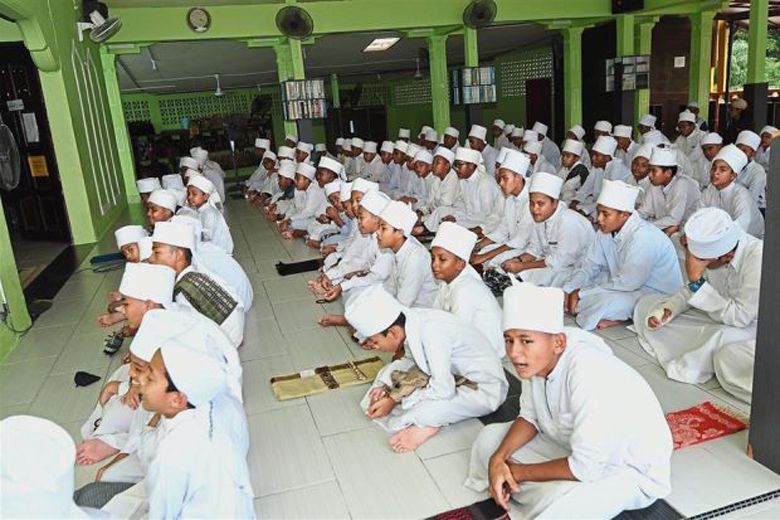Malaysia to boost education standards and oversight for Quranic schools
Sign up now: Get insights on the biggest stories in Malaysia

There are more than 36,000 students in some 600 tahfiz schools in Malaysia, which are privately funded.
PHOTO: THE STAR/ASIA NEWS NETWORK
Follow topic:
PUTRAJAYA - The Malaysian government wants tahfiz schools - where students spend long hours memorising the content of the Islamic holy book - to inject other subjects into their syllabus to allow students to pursue higher education and join the regular workforce.
Deputy Prime Minister Ahmad Zahid Hamidi said these students often graduate without SPM (the equivalent of the GCE 'O' level certificate) or STAM (Malaysian Higher Religious Certificate that allows entry into secular local universities), hampering their job prospects.
"If they have memorised the Quran, what is next?" he asked in a speech at an event on Feb 15 in Putrajaya.
"From our previous experience, we found that there were a lot of problems, because when they don't have SPM, when they don't have STAM, they can't pursue their education," he said as quoted by The Malay Mail Online (MMO) news site.
The issue is important for Malaysia at a time when Malay Muslims are turning more conservative, with more parents sending their children to these Quranic schools to build character and instil good moral values in them.
The Malaysian government, aware of the need to integrate and for having closer oversight of tahfiz schools, last year set up a National Tahfiz Education Policy, monitored by Datuk Seri Zahid.
The word tahfiz literally means "memorising" the Quran.
There are more than 36,000 students in some 600 tahfiz schools in Malaysia, which are privately funded.
Some 600 more tahfiz schools operate without education permits, officials have said, and these have thousands more young students under their care.
Each school decide on their own syllabus today. In a typical tahfiz school in Malaysia, students sit down in classes to memorise the Quran with some additional Islamic subjects added on.
But they are not taught mathematics, science or technical subjects.
Most of the Quranic school graduates become Islamic teachers and officials at mosques. Others open up small trading businesses, or, much later, start their own tahfiz schools.
The tahfiz schools are different from the madrassah (Islamic school) system in Malaysia, in that some of the madrassah are funded by the government, with students taking the SPM and STAM exams.
Madrassah students do not have to memorise the Islamic holy book to graduate.
Mr Zahid said the government aims to create more tahfiz graduates with "professional qualifications", possibly making Malaysia a model for other countries.
"The prime minister aspires that by 2050, 125,000 tahfiz graduates-professional tahfiz graduates will be created," Mr Zahid said as quoted by MMO.
For a start, Mr Zahid said a new tahfiz school is being built in his Bagan Datuk constituency in Perak that will have 1,000 tahfiz graduates annually.
They will all have to sit for the SPM and STAM.

